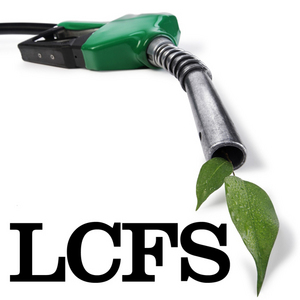CARB: California LCFS amendments take effect on July 1

July 8, 2025
BY Erin Krueger
The California Air Resources Board on June 27 announced amendments to the state’s Low Carbon Fuel Standard regulations will take effect beginning on July 1. The amended regulations were approved by the agency in November 2024, but implementation was delayed due to regulatory clarity issues.
CARB on Nov. 8 approved updates to its LCFS that aim to reduce the carbon intensity of the state’s transportation fuel by 30% by 2030 and by 90% by 2045. The updates also include a variety of technical changes to the LCFS program, including those requiring fuel producers to track crop-based and forestry-based feedstocks to their point of origin; requiring independent feedstock certification to ensure biomass-based diesel and sustainable aviation fuel (SAF) feedstocks are not undermining natural carbon stocks; prohibiting palm-derived fuels from receiving credits; placing a cap on the use of soybean oil, canola oil and sunflower oil in the production of LCFS-compliant biodiesel diesel fuels; and updates that phase out avoided methane crediting associated with the use of biomethane as a combustion fuel but extend the use of biomethane for renewable hydrogen.
Under California law, the State’s Office of Administrative Law must review rulemakings proposed by state agencies to ensure compliance with the Administrative Procedure Act, a state law that governs the rulemaking process. One component of that law deals with clarity, requiring regulations to be easily understood the people directly affected by them.
Advertisement
Advertisement
CARB submitted its final regulatory package on the approved LCFS amendments to OAL on Jan. 3. OAL on Feb. 18 notified CARB of its intention to disapprove the LCFS amendments citing “clarity” issues.
CARB on Feb. 25 received a Decision of Disapproval of Regulatory Action from OAL, which details the reasons for the disapproval. That document indicates that OAL has identified 26 proposed regulatory provisions where additional modifications may be necessary to ensure the regulatory provisions can be “easily understood by those persons directly affected by them.”
Under state law, CARB had 120 days to rewrite and resubmit the amendments to OAL.
Advertisement
Advertisement
According to a statement issued by CARB on June 27, OAL has now approved the LCFS regulations, allowing the amendments to take effect on July 1.
“Implementing the July 1 effective date for the LCFS provides critical certainty to industry, as well as the LCFS credit market,” said CARB Board Chair Liane Randolph. “But often lost in the noise around this program are our primary reasons for approving it: better health for Californians, our economy and the environment, as well as achieving required state and federal air quality standards.”
A full copy of CARB’s announcement is available on the agency’s website.
Related Stories
While final IRS guidance is still pending, the foundation of the 45Z program is well defined. Clean fuel producers should no longer be waiting; they can now move forward with critical planning and preparation, according to EcoEngineers.
The IRS on July 21 published a notice announcing the 2025 calendar-year inflation adjustment factor for the Section 45Z clen fuel production credit. The resulting adjustment boosts maximum the value of the credit by approximately 6%.
The U.S. Senate on July 23 voted 48 to 47 to confirm the appointment of Aaron Szabo to serve as assistant administrator of the U.S. EPA’s Office of Air and Radiation. Biofuel groups are congratulating him on his appointment.
U.S. Secretary of Agriculture Brooke L. Rollins today announced the reorganization of the USDA, refocusing its core operations to better align with its founding mission of supporting American farming, ranching, and forestry.
The U.S. Department of Energy’s Office of Energy Efficiency and Renewable Energy is soliciting public comments on a preliminary plan for determining provisional emissions rates (PER) for the purposes of the 45Z clean fuel production credit.
Upcoming Events










